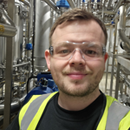-
Courses

Courses
Choosing a course is one of the most important decisions you'll ever make! View our courses and see what our students and lecturers have to say about the courses you are interested in at the links below.
-
University Life

University Life
Each year more than 4,000 choose University of Galway as their University of choice. Find out what life at University of Galway is all about here.
-
About University of Galway

About University of Galway
Since 1845, University of Galway has been sharing the highest quality teaching and research with Ireland and the world. Find out what makes our University so special – from our distinguished history to the latest news and campus developments.
-
Colleges & Schools

Colleges & Schools
University of Galway has earned international recognition as a research-led university with a commitment to top quality teaching across a range of key areas of expertise.
-
Research & Innovation

Research & Innovation
University of Galway’s vibrant research community take on some of the most pressing challenges of our times.
-
Business & Industry

Guiding Breakthrough Research at University of Galway
We explore and facilitate commercial opportunities for the research community at University of Galway, as well as facilitating industry partnership.
-
Alumni & Friends

Alumni & Friends
There are 128,000 University of Galway alumni worldwide. Stay connected to your alumni community! Join our social networks and update your details online.
-
Community Engagement

Community Engagement
At University of Galway, we believe that the best learning takes place when you apply what you learn in a real world context. That's why many of our courses include work placements or community projects.
Automation and Control (Specialist Diploma)

Course Overview
This one-year, part-time Specialist Diploma aims to develop knowledge around the issues and opportunities associated with automation and control technology and to improve skills in the areas of engineering materials including metals, ceramics, polymers and composite materials; manufacturing processes, both traditional and recently developed; and electronic manufacturing technologies. Students gain an understanding of industrial control systems, robotics and automated production lines.
The specialist diploma awards are particularly suitable for students requiring medium-term upskilling for career advancement or for those interested in focused study in this subject area for personal or topical interest. The specialist diplomas are linked to the degree cycle of the modular programme in Science & Technology Studies which allow students to specialise by choosing from a range of electives. These elective modules are also available as independent awards which students may take for the purposes of upskilling or retraining in the area of Automation & Control, Medical Device Science, Lean & Quality Systems and Corporate Environmental Planning.
Mode of Study: Online

This course has been approved by Next Level Skillnet and Industry 4.0 Skillnet, see details below:
Next Level Skillnet: This course has been approved for a fees subsidy of up to 40% for students whose company is a member of their network. For more information, contact Sue Davies at: sue@nextlevel.ie
Industry 4.0 Skillnet: This course has been approved for a fees subsidy of 20% for professionals employed in the Irish Private sector and Sole Traders. Funding is limited and subject to availability on the date of request. Please email Ylenia Morselli at info@industry4skillnet.com for terms and conditions.
Applications and Selections
Applications open from 1st April 2024.
Applications are made online via the University of Galway Applications System. This course is listed under Adult Learning Undergraduate\Postgraduate, CPD, Micro-credentials & Summer School Applications.
Please visit our How to Apply page for Application tips and Supporting Documents information.
NB: Applicants should have a Diploma at NFQ Level 7 of 90 ECTS minimum, in a Science, Engineering or Technical area, or otherwise prove that they satisfy the prerequisites of each of the modules as listed in the course outline section.This course is also available through Springboard, find out more here.
Who Teaches this Course
Requirements and Assessment
Assessment is through assignments, written examinations and in some cases practical laboratory sessions. Exams take place at the end of each semester. All modules from the course will be individually assessed.
The course is delivered online on a part-time basis. Candidates will receive learning materials in online format for each module. Materials will be specifically designed for independent study and will be supplemented by supporting reading material and interactive learning resources where appropriate. The course requires attendance online for approximately 10 hours per module, mainly on Saturdays.
Key Facts
Entry Requirements
Applicants should have a Diploma at NFQ Level 7 of 90 ECTS minimum, in a Science, Engineering or Technical area, or otherwise prove that they satisfy the prerequisites of each of the modules as listed in the course outline section.
Entry requirements for part-time students can be found here (i.e. age, english language requirements etc.).
Additional Requirements
Recognition of Prior Learning (RPL)
Duration
1 year, part-time
Next start date
September 2024
A Level Grades ()
Average intake
25-30
QQI/FET FETAC Entry Routes
Closing Date
NFQ level
8
Mode of study
Online Learning
ECTS weighting
30
Award
Diploma
CAO
Course code
Course Outline
The Automation and Control (Specialist Diploma) consists of four inter-related taught modules and a project (chosen in consultation with their project supervisor), to allow individuals to up-skill in a particular area or study in a highly focused area of interest. See module descriptions below:
Machine Design
This module introduces students to the theory behind simple and compound machines, reliability of a system, gearing and gear ratio theory, spring decision and design criteria. Machine Design also introduces the students to some 3D printing for assembly. This helps introduce and develop the students’ 3D modelling skills.
Automation 1
Students are introduced to automation and automated systems. Items such as sensors, actuators, motors, pneumatics, discrete controllers, Programmable Logic Controller (PLC) programming and robotics are discussed. PLC coding is carried out in logic ladder format to design and test automated and pneumatic systems. Material handling, automated guided vehicles, automated production lines, and storage are also considered. Automation is getting more intelligent, adaptable, autonomous, and used extensively in industry and the module addresses how these systems are used in industry. For example, quality control, increased throughput, and increasing competitive advantage.
Automation 2
The Automation 2 module introduces material transport systems, outlines the use of storage systems, presents an overview of automated manufacturing, examines automated assembly systems, investigates the use of flexible manufacturing systems, focuses on the use made of inspection technologies and considers how product design is generally carried out in modern production environments by means of computer-aided design and computer-aided manufacturing systems, operating in combination.
Manufacturing Technology
The Manufacturing Technology module introduces engineering materials including metals, ceramics, polymers and composite materials, manufacturing processes, both traditional and recently developed and electronic manufacturing technologies.
Automation and Control Project
In this project the learner will complete a literature review on a topic that is relevant to both the course and to their own work where possible. The learner will develop a project plan and execute a practical research project using well established research methodology methods. Students will be allocated an academic supervisor who will work with them to offer guidance and ensure the successful completion of the project. This module will enable the learner to develop their project management skills, team-working and communication skills.
NB: the following modules can be taken as micro-credentials:

Why Choose This Course?
Career Opportunities
This course is intended for those who wish to improve their skills in the areas of engineering materials including metals, ceramics, polymers and composite materials; manufacturing processes, both traditional and recently developed and electronic manufacturing technologies.
It will assist those who want to apply correct design principles to engineering components, to develop a knowledge of Jig and Fixture design for Manufacturing Systems, and to develop the ability to produce high quality engineering drawings on a CAD system.
The two automation modules give an overview of how automation has become important for industry, and the key strategies adopted by industry to deploy automation in order to improve competitiveness. Automation is used to improve a number of key performance indicators. The modules describes these in detail, as well as describing tangible and quantifiable goals for various automation projects.
By providing the relevant skills and training this course seeks to address the critical shortage in skills in the area of automation and machine control, supply chain management and manufacturing processes.
Who’s Suited to This Course
The specialist diplomas are primarily intended for students who already have a Science or Engineering related diploma or degree and who wish to up-skill or become expert in one of the specialist areas as offered through these one-year diploma courses.
Learning Outcomes
Transferable Skills Employers Value
In addition to developing content knowledge this programme aims to develop useful skills, known as Professional Transferable Skills (PTS). The importance of PTS is now widely recognised in the workplace. The following nine skills are considered to be the most important in the context of this course and are particularly advantageous at management levels:
- problem-solving
- critical thinking
- decision-making
- oral communication
- written communication
- team-working
- networking
- customer-centric skills
- creativity, innovation & entrepreneurship
Work Placement
Study Abroad
Related Student Organisations
Course Fees
Fees: EU
Fees: Tuition
Fees: Student levy
Fees: Non EU
NB: EU Fees are comprised of Tuition + Student Levy.
*Next Level Skillnet and Industry 4.0 Skillnet funding are available for this course. You also may be eligible for the Adult Learning Tuition Scholarship, find out more here.
Find out More
What Our Students Say

Rónán Mulhall | Student
I decided to further my skillset by completing the Specialist Diploma in Automation & Control. I am currently working as an Electrical Process Technician, where in the Engineering, Asset Care & Maintenance department we are responsible for maintenance (preventative & reactive) on critical processing plant & machinery and continuous improvement on these systems. The knowledge gained from the course has improved and upgraded my skillset. As a shift worker I found the online teaching method to be very flexible and the lecturers were also industry professionals themselves. I also found the course modules to be very relevant to all walks of industry. I particularly enjoyed the Machine Design module which opened a brief insight into the world of Mechanical Engineering. The Project module also allowed me to pick a piece of plant from my workplace and study it in greater detail, which gave me the opportunity to have a deeper understanding of some of our processes and make an improvement. Professional Development is key when it comes to keeping your knowledge and skillset up-to-date and preparing you for greater responsibilities to further your career.

Magdalena Rygiel | Graduate
I am originally from Poland, where I graduated with a Bachelor Degree in Accounting and Corporate Finance. After moving to Ireland, I started working in the medical device sector where, after a few years, I decided to upgrade my qualifications and undertook education in this field. The Specialist Diploma in Automation and Control was the second diploma I completed after majoring in Medical Device Science. I am currently working as a R&D/Lab Technician, where in the NPD department we are responsible for product and process design. We strive to use the latest technology to deliver world class solutions to our customers. The course has improved my professionalism, the proper application of the knowledge gained has improved the quality and efficiency of my work, which will have a positive impact on the company. Personal development is a very important and natural part of everyone's life, so it is never too late to start learning again. Thank you to all the staff at NUI Galway.



















